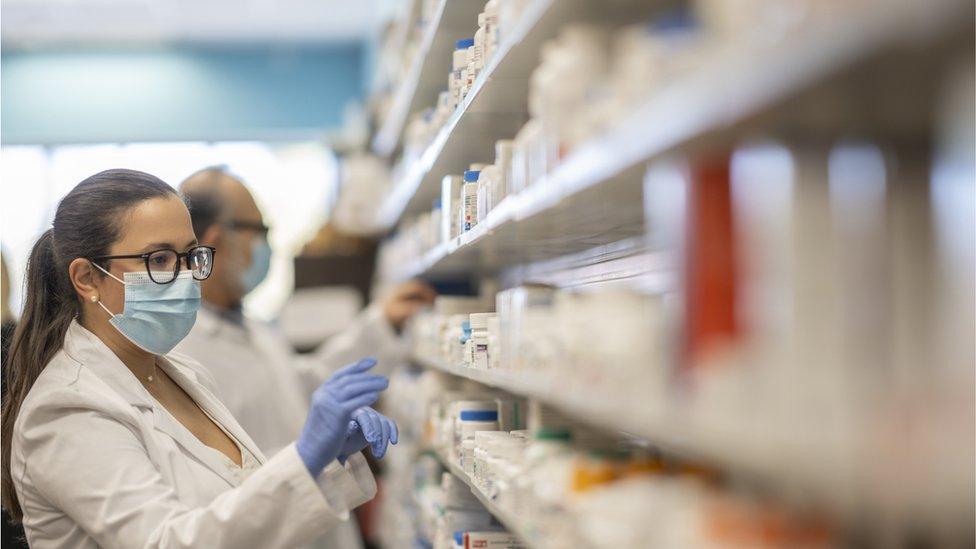Covid-19: High-risk patients getting new treatments
- Published

New Covid-19 treatments are being given to patients in Northern Ireland who are at the highest risk from the effects of the virus.
In the past four weeks, more than 350 patients here have received them either at home or at an outpatient service.
The drugs, which were previously only available to patients in hospital, are now being offered to those eligible in the community.
They have been described as "ground breaking".
The drugs have been approved by the Medicines Healthcare Products Regulatory Agency (MHRA).
Northern Ireland's Health Minister Robin Swann said the rollout is a "significant milestone in our battle against Covid-19 and will provide an additional layer of support for the most vulnerable".
The patients have received either an antibody treatment or an oral antiviral medicine.
Those eligible for these treatments are prioritised for PCR testing once a positive lateral flow test has been received.
Once in receipt of positive PCR test result, a clinician will contact the patient to discuss which treatments may be suitable for them.
Patients are advised this could be from an unknown or withheld number.
Those in the highest risk group include people with Down's Syndrome, rare neurological conditions like multiple sclerosis, certain types of cancer, HIV/AIDS and severe liver conditions.
Northern Ireland's Chief medical officer Prof Sir Michael McBride said: "The vaccination programme remains our first line of defence against Covid-19 but these treatments have an important role in lowering the risk of severe illness and death and will also reduce the number of people who need to be admitted to hospital, thus helping to ease pressures on the health service over the challenging winter months."
Related topics
- Published20 January 2022